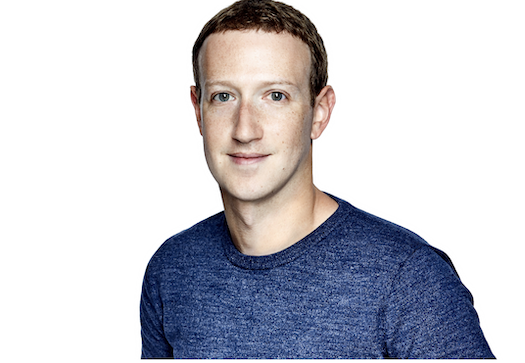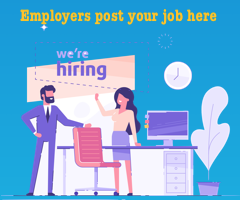You’d blink too if you’d shot yourself in the foot.
Comment from Peter Saxon.
Yesterday, my good wife, Pauline, gently woke me from a deep slumber to alert me to the news that Facebook had cut access to all major Australian news sites. Nine’s radio, television and online newspapers as well as News Corp outlets. All the radio networks, ARN, Nova Entertainment, SCA, Grant Broadcasters and more, were left with a shell of a Facebook page that simply told visitors: No Posts Yet.
I was about to doze off for a few extra moments of kip when Pauline suggested that I probably should check the status of radioinfo’s own Facebook page. I frantically leapt out of bed, ran to the computer and logged on to FB. To my great relief we were offline, like everyone else. Oh, joy! No lesser light than Facebook had deemed radioinfo to be a major Australian news site, worthy of being blocked.
Of course, a bigger problem soon emerged, that in its haste and determination to show local media who’s boss, Facebook also cut service to a number of government, NGOs and charity sites including state health pages that provide essential information on the rollout of COVID vaccines.
For me, personally, that was the last straw. I’ve deactivated my Facebook page. And not for the first time. It’s like giving up smoking. It takes several attempts to quit. Or as Al Pacino says in Godfather III, “Just when I thought I was out, they pull me back in.”
Facebook is relentless in its endeavors to repatriate stray sheep to its flock. It keeps sending emails to coax me back with unread messages, posts and friend requests which I can only access if I reactivate my account. Not any more!
I don’t care if Donald Trump himself wants to befriend me, I’ve given Facebook up for good. If people want to contact me, find out what I’m up to, they can phone me, text me or email me. I have an emailing list for jokes and news articles to share with friends – the real kind with whom I actually have a relationship. And I’m on a number of their lists too. I don’t need more “friends.”
For Facebook, Australia represents a tiny percentage of its global revenue. But the whole world is watching what happens here. We’re a test case. If Facebook agrees to abide by the new laws, that will more than likely pass through the senate shortly, then it will be fighting similar battles in every territory in which it operates.
So, instead of coming to the party and accepting the ruling of a sovereign nation, as Google has done, Facebook’s decided to storm the Capitol, as it were, in a last-ditch effort to turn public opinion against the government.
If that’s the case, then Facebook has picked the wrong country to pick a fight with.
Australians just hate foreigners, especially those who reportedly pay less than three percent tax, telling them how to run their country.
If nothing else, Facebook has managed to unite all sides of politics in their condemnation of the behemoth’s bullying tactics.
So, if the whole world is watching, it could just find that calling Facebook’s bluff is the way to go.
Facebook’s problem is one that every experienced radio content director knows and fears: reaching market dominance and becoming arrogant. Arrogance is often the beginning of the end for once mighty radio stations and networks. When that #1 swagger turns to arrogance, if the audience can’t sense it you can bet that competitors and advertisers can.
In his response to Australia’s proposed new Media Bargaining law, William Easton, Managing Director, Facebook Australia & New Zealand said this in a post on, where else, Facebook.
“The proposed law fundamentally misunderstands the relationship between our platform and publishers who use it to share news content.”
No, Mr Easton, we haven’t misunderstood at all. Radio has spent decades, battling the record companies who owned the copyright to product that music stations used as the backbone of their content. Radio argued that because each song they played sold more records it was an even stevens deal. After much argy-bargy, radio ended up paying for the copyrighted material it used.
Now, the shoe is on the other foot with news organisations wanting payment for the copyrighted material used by Facebook.
However, there’s a big difference between what occurred with radio and record companies and what’s happening with Facebook now. Back then, from the 1960’s till about ten years ago, radio airplay was indeed the most potent way of selling records. Where Mr Easton misunderstands the relationship between news media and Facebook is that the news media didn’t embrace his platform because it was an opportunity to find new readers. Radio had to be there because its competitors were.
In other words, the experience for radio and other media is more like the experience of restaurants and the big delivery services. As I wrote previously, the restaurants that got in early, enjoyed a surge of business at the expense of those who declined to participate. Pretty soon, most of the others came on board.
The food delivery business may have experienced astronomical growth but the actual food business hasn’t. Most restaurateurs, not all, report that what the delivery giants have done is to cannibalise their established dine-in clientele who now order take away instead. And for that, the delivery service clips the ticket along the way to the tune of around 30 per cent.
The fact is that without the food that restaurants buy and cook, UBER Eats, Menulog and the rest would have no business because they’d have nothing to deliver.
I’ll have more to say about this on Monday.
In the meantime, here’s a classic John Oliver sketch about another example of clipping the ticket along the way – Fifa and The World Cup

Peter Saxon
P.S. It’s 2:50am and I I’ve gone to the radioinfo FB Page and it seemed to have been restored. I checked a couple of radio stations and their FB pages were also looking normal. But when I went back to radioinfo, and it asked me to log in, which I did. And it reactivated my personal page. Dammit! I’ll have to get Pauline to deactivate me again.
Subscribe to the radioinfo podcast on these platforms: Acast, Apple iTunes Podcasts, Podtail, Spotify, Google Podcasts, TuneIn, or wherever you get your podcasts.





Without pre-empting the author's forthcoming comments on Monday (22-02-2021), I would like to make remarks on Facebook and the 1970 "pay for play" dispute and third party "ticket clipping" food deliverers. The latter comment may not necessarily apply to broadcasting but applies to workers.
First, the author raised the issue of what happened during the 1970 "pay for play" dispute between the radio stations who argued that they were selling the record companies' product, while the record companies argued that they were not being paid for radio stations using the record companies' products.
In the meantime, record companies refused to even supply their product to radio stations. Australian artists were caught in the malaise, with some radio stations not playing their music and others playing their music.
At the same time, it was an opportunity for Australian artists to make cover recordings of UK artists such as "The Mixtures'" cover of "Mungo Jerry's" 'Yellow River' and Liv Maessen's cover of Mary Hopkins' 'Knock Knock Who's There?' . Many of these covers topped the charts. An example of an album of all-Australian artists including UK covers is "20 Fable Chartbusters"
A closing of one door was the opportunity for the opening of the door the growth of local talent.
Could the closing down of Australian Facebook pages represent the opportunity to thrive without Facebook? Facebook was supposed to block off Australian media channels but unfortunately Facebook's algorithm's also blocked off non-media sites. Facebook's CEO apologised, source https://www.smh.com.au/business/companies/we-are-sorry-senior-facebook-exec-apologises-for-blocking-health-emergency-sites-20210219-p5745a.html.
The answer could be yes if 'blocks' to non-media Facebook sites are sustained for a long time and the various non-media groups seek alternatives to post messages and developers take the risk to develop new social media pages.
Otherwise it will be business as usual. Yet, society has lived without social media. Though the days are gone when one had tune in to 2UE to find out whether one's local school sports carnival was postponed, alternative social media sites could post notification of the postponement of a sports carnival. Then there's SMS through the mobile phone network.
For media organisations, our Prime Minister, The Hon. Scott Morrison has taken a courageous step to pass laws with support of the opposition that social media companies pay a royalty to news organisations. The rest of the world is following our Prime Minister's lead.
Secondly, when it comes to delivering of food by third party "ticket clippers", the problem is while the early adopters, the restaurants, made gains, unfortunately, I believe the latter adopters out of fear joined in.
Personally, if I want a pizza, I'll rock up to my local pizza restaurant. I never use the pizza shop's delivery service and third party "ticket clippers".
If you think that the local restaurant is being ripped off by the "third party ticket clippers", the person delivering the product may well also be a victim of a lack of safety education and the take-it-or-leave-it contracts. In one instance, two workers objected to their pay being cut by 30% and were dismissed. Industrial action is taking place now:
Sources:
https://www.smh.com.au/national/treat-workers-with-dignity-hungrypanda-workers-say-they-were-let-go-after-protesting-pay-cuts-20210218-p573mw.html
https://www.smh.com.au/politics/federal/i-feel-helpless-delivery-driver-sacked-after-protesting-a-pay-cut-20210203-p56z36.html#comments
Thank you,
Anthony of exciting Belfield
With all due respect to the author, I don’t think the subject is as cut and dried as he thinks it is. I have seen plenty of support for Facebook and their position, and the steps they have taken in public forums over the last few days.